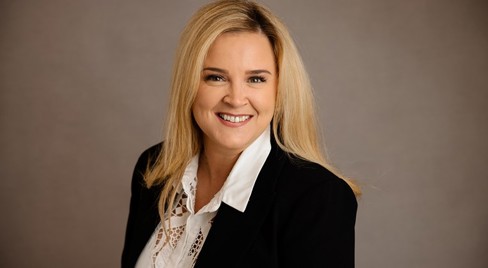Navigating the world of R&D tax credits can be complex, especially when it comes to the eligibility criteria set by HMRC. One often-overlooked yet critical factor is a company’s ‘going concern’ status. Many companies will assume that they are a ‘going concern’ and they’re usually right; but what about if you’ve transferred your trade? Or you’re not quite sure where the line is?
This fundamental accounting principle can significantly influence whether a business qualifies for valuable R&D tax relief. Whether you’re a startup or an established business investing in innovation, understanding this concept is essential to making a successful R&D claim and maintaining compliance.
What is a 'Going Concern'?
A 'Going Concern' is a fundamental accounting principle that describes a business that is expected to remain operational and generate profits for the foreseeable future. Being classified as a going concern makes it easier to secure financing and attract investors.
Factors like access to funds, market demand, competition, and management's competence are used to assess a company's going concern status. A business that can meet its financial obligations and demonstrate a reasonable expectation of continuing operations is classified as a going concern.
In financial reporting, auditors play an essential role in evaluating a company. Auditors are responsible for reviewing financial statements and assessing the viability of a company's business model. They consider current economic and industry factors and review corporate governance structures. If auditors have any doubts about a company's ability to continue operations, they may issue a disclaimer or qualify the audit report.
Claiming R&D Tax Credits as a Going Concern
When it comes to claiming R&D tax credits in the UK, the 'going concern' status of a company plays a crucial role. In fact, to qualify for R&D tax credits, a company’s latest published accounts must have been prepared on a going concern basis, and nothing in the accounts can suggest that that status depends on its receiving R&D relief or tax credits.
It’s important to note that the company ceases to be a going concern after surrendering a loss for a cash credit, the claim is annulled. However, the company will not be required to pay back any credit paid before the company changed its status.
As one of the requirements for companies making claims, it is important for companies to take steps to be able to prove their status as a going concern to secure R&D tax credits. This would only be necessary in the event of a compliance check from HMRC, but could mean the difference between your claim being accepted or rejected.
Providing relevant documentation like financial statements, business plans, and other evidence that demonstrates financial viability will demonstrate that you are compliant with the going concern criteria of the scheme.
Companies can thus benefit from the government's tax relief incentives while assuring the government and investors that the business is stable and sustainable in the short and long term.
The Effect of Intra-Group Transfers
HMRC recently clarified the rules for a specific instance where a company may not be considered a going concern while still technically eligible for R&D tax credits.
For accounting periods beginning on or after 1 April 2023, a company will still be eligible for R&D tax credits if the only reason for the latest published accounts not being prepared on a going concern basis was a relevant group transfer.
Therefore, if there is a transfer of a trade to another group company in the year of the accounts, the transferor will still be considered a going concern for that period.
However, the transfer must happen in the accounting period where the accounts are prepared on a basis other than a going concern due to the transfer.
For example:
Company A has an accounting period ending 31 December. In 2026, it transfers its trade (and R&D activity) to Company B, another company in its group. Therefore, for the accounts for the period ended 31 December 2026, Company A is not considered a going concern as it was transferred to Company B and will no longer operate.
However, Company A will be considered a going concern for the purposes of R&D tax credits as the only reason Company A’s accounts were not prepared on a going concern basis was the trade.
Note that the transfer of the trade was to a) another group company and b) in the same period in which the accounts were not prepared as a going concern. If this is not the case, the company cannot be eligible for R&D tax credits.
For example:
Company C has an accounting period ending 31 December. In January 2027, it transfers its trade (and R&D activity) to Company D, another company in its group. Therefore, for the accounts for the period ended 31 December 2026, Company C is not considered a going concern as it was transferred to Company D and will no longer operate.
Unfortunately, as the transfer of the trade occurred in the period after Company C’s most recent accounts, it cannot qualify for R&D tax credits as it was not considered a going concern at the end of 2026.
Making Your Claim
Being a going concern is an important requirement for businesses eligible for R&D tax credits in the UK. To be considered a going concern, a company must expect to continue to trade for the foreseeable future, have the resources and ability to meet its financial obligations, and show no indication of planning to cease trading or entering liquidation. This will be indicated by your accounts being prepared on a going concern basis or not.
At Tax Cloud, we check all of these important questions as early as possible to ensure your claim is submitted without a hitch. We handle all the complicated questions and support you through the process of data gathering, allowing you to focus on innovating.
If you would like to discuss any aspect of R&D tax credits or the Tax Cloud portal, feel free to contact our friendly expert team on 020 7360 4437 or send us a message.







